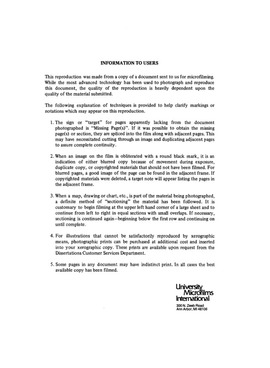| dc.contributor.author | Zandi, Taher, | en_US |
| dc.date.accessioned | 2013-08-16T12:28:45Z | |
| dc.date.available | 2013-08-16T12:28:45Z | |
| dc.date.issued | 1982 | en_US |
| dc.identifier.uri | https://hdl.handle.net/11244/5044 | |
| dc.description.abstract | Adult age differences in encoding strategies used for story information were assessed by cued recall task. Subjects heard a taped version of short story, looked at three pictures illustrating that story, or heard the story while looking at these pictures. Cued recalls were evaluated for amount of implicit, explict, and non-available story information retained. Cued recall was used as an indication of information encoded. The old adults recalled less and all subjects retained more accurate knowledge of implicit information than explicit heard or seen information. Subjects, especially the young and those in the story only presentation, retrieved more of the explicitly heard information. Older subjects retrieved more implicit information. Different adult age changes occur for the use of encoding and retrieval strategies during memory tasks. | en_US |
| dc.format.extent | viii, 130 leaves : | en_US |
| dc.subject | Psychology, Developmental. | en_US |
| dc.title | Adult developmental shift in memory-encoding strategies : | en_US |
| dc.type | Thesis | en_US |
| dc.thesis.degree | Ph.D. | en_US |
| dc.thesis.degreeDiscipline | Department of Psychology | en_US |
| dc.note | Source: Dissertation Abstracts International, Volume: 43-06, Section: B, page: 2020. | en_US |
| ou.identifier | (UMI)AAI8225521 | en_US |
| ou.group | College of Arts and Sciences::Department of Psychology | |
